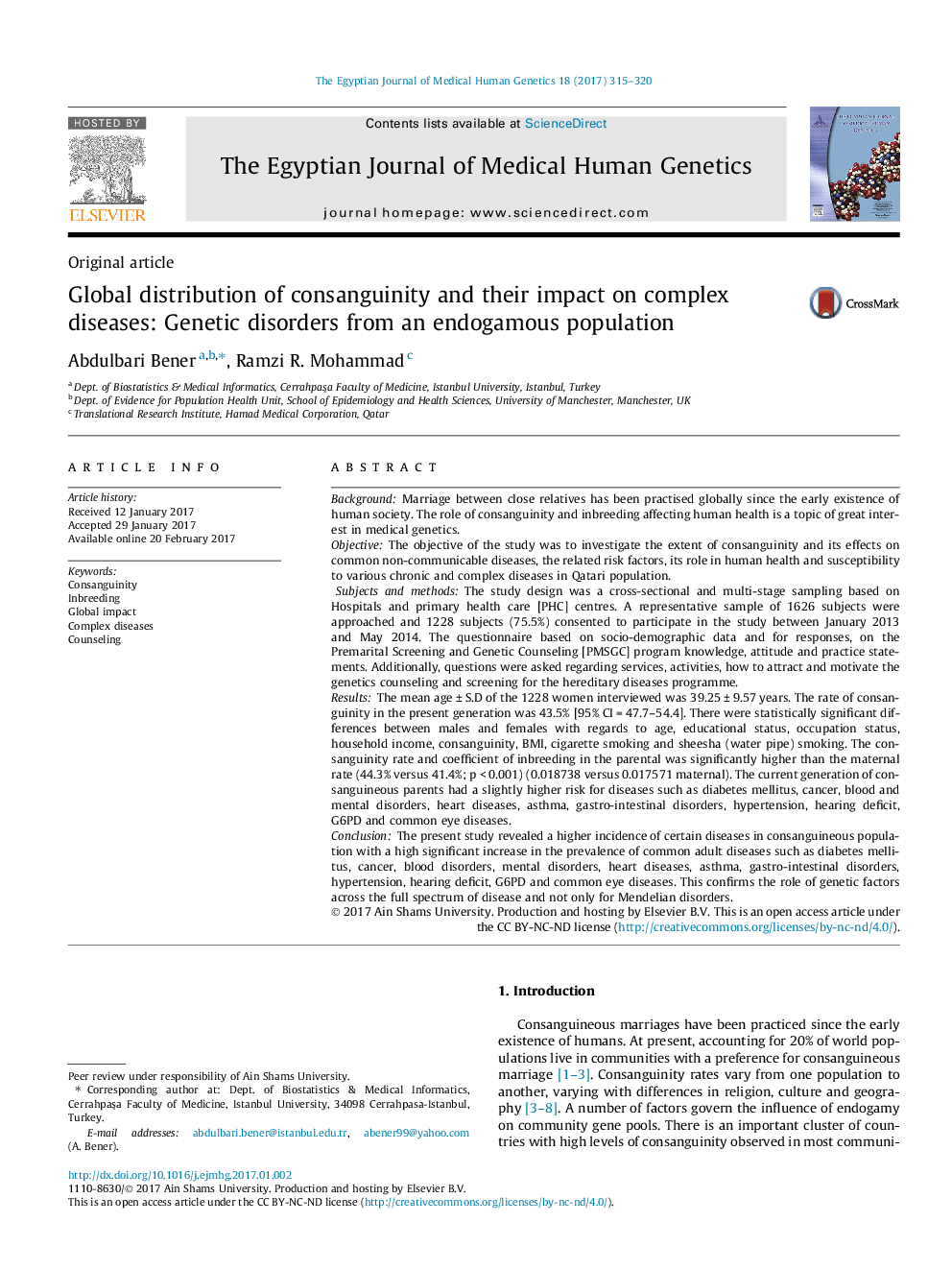| کد مقاله | کد نشریه | سال انتشار | مقاله انگلیسی | نسخه تمام متن |
|---|---|---|---|---|
| 5532108 | 1549614 | 2017 | 6 صفحه PDF | دانلود رایگان |
BackgroundMarriage between close relatives has been practised globally since the early existence of human society. The role of consanguinity and inbreeding affecting human health is a topic of great interest in medical genetics.ObjectiveThe objective of the study was to investigate the extent of consanguinity and its effects on common non-communicable diseases, the related risk factors, its role in human health and susceptibility to various chronic and complex diseases in Qatari population.Subjects and methodsThe study design was a cross-sectional and multi-stage sampling based on Hospitals and primary health care [PHC] centres. A representative sample of 1626 subjects were approached and 1228 subjects (75.5%) consented to participate in the study between January 2013 and May 2014. The questionnaire based on socio-demographic data and for responses, on the Premarital Screening and Genetic Counseling [PMSGC] program knowledge, attitude and practice statements. Additionally, questions were asked regarding services, activities, how to attract and motivate the genetics counseling and screening for the hereditary diseases programme.ResultsThe mean age ± S.D of the 1228 women interviewed was 39.25 ± 9.57 years. The rate of consanguinity in the present generation was 43.5% [95% CI = 47.7-54.4]. There were statistically significant differences between males and females with regards to age, educational status, occupation status, household income, consanguinity, BMI, cigarette smoking and sheesha (water pipe) smoking. The consanguinity rate and coefficient of inbreeding in the parental was significantly higher than the maternal rate (44.3% versus 41.4%; p < 0.001) (0.018738 versus 0.017571 maternal). The current generation of consanguineous parents had a slightly higher risk for diseases such as diabetes mellitus, cancer, blood and mental disorders, heart diseases, asthma, gastro-intestinal disorders, hypertension, hearing deficit, G6PD and common eye diseases.ConclusionThe present study revealed a higher incidence of certain diseases in consanguineous population with a high significant increase in the prevalence of common adult diseases such as diabetes mellitus, cancer, blood disorders, mental disorders, heart diseases, asthma, gastro-intestinal disorders, hypertension, hearing deficit, G6PD and common eye diseases. This confirms the role of genetic factors across the full spectrum of disease and not only for Mendelian disorders.
Journal: Egyptian Journal of Medical Human Genetics - Volume 18, Issue 4, October 2017, Pages 315-320
